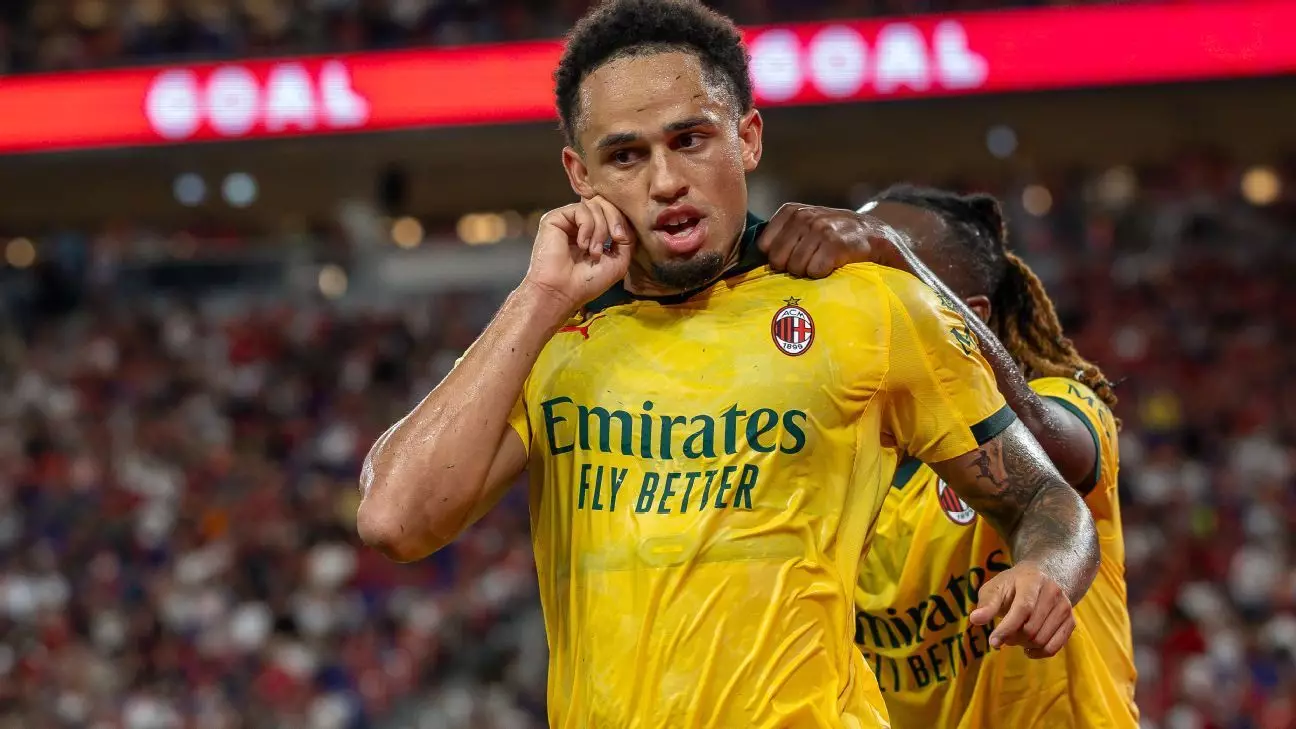Leeds United’s recent summer transfer activity marks a decisive shift toward ambition and strategic rebuilding. The acquisition of Noah Okafor from AC Milan is more than just a new signing; it’s a statement of intent. At 25 years old, Okafor’s versatility across the forward line makes him a valuable asset for a club eager to reestablish itself in the Premier League’s competitive landscape. His experience in top-flight European football, particularly his stint at Napoli during the recent season, demonstrates his readiness to adapt and deliver in high-pressure environments. By securing a player with a proven goal-scoring and assisting record for Salzburg and Switzerland, Leeds signals that they are not merely aiming for survival but aiming to thrive.
This move reflects a broader philosophy: investing wisely in young, adaptable talent capable of making an immediate impact. The reported fee, potentially rising to £18 million, indicates the club’s willingness to commit substantial financial resources into building a squad capable of punching above its weight. Leeds’ ambition is evident in their strategic signings, which signal a desire for growth rather than mere relegation avoidance.
Reevaluating Transfer Goals Amidst Lingering Uncertainties
While Okafor’s arrival is promising, it raises questions about Leeds’ overall transfer strategy. Their reported spending of around £92 million since returning to the Premier League shows a proactive approach, though the diversity of their targets suggests an ongoing quest for cohesion and depth. Notably, the club’s current focus appears to be on strengthening attacking options; Farke’s desire to add a full-back and possibly another striker highlights a recognition that the squad needs balance and versatility.
The potential withdrawal from the pursuit of Manor Solomon signifies a strategic pivot — instead of spreading resources thin, Leeds seems to prioritize a more targeted and impactful recruitment strategy. The club’s willingness to adapt its plans demonstrates a mature understanding that squad harmony and quality must take precedence over chasing every available player. This pragmatic approach, paired with their willingness to spend, reveals a club that understands the importance of making incremental yet meaningful improvements.
Beyond the Pitch: A Sign of Future Aspirations
Leeds United’s transfer activity underscores their broader vision: returning to the Premier League’s upper echelons is more than just avoiding relegation; it’s about rebuilding a legacy. Their investment in players like Okafor of international stature shows confidence that fresh talent and youthful energy can propel them forward. Moreover, their willingness to commit significant funds indicates an understanding that success requires both strategic planning and patience.
Farke’s ongoing efforts to bolster the squad reflect a manager committed to molding a cohesive team capable of competing against the best. With their considerable spending and targeted investments, Leeds are signaling to their fans and the Premier League that they are serious about reclaiming their place among England’s elite, shaping a future built on quality, ambition, and resilience.

